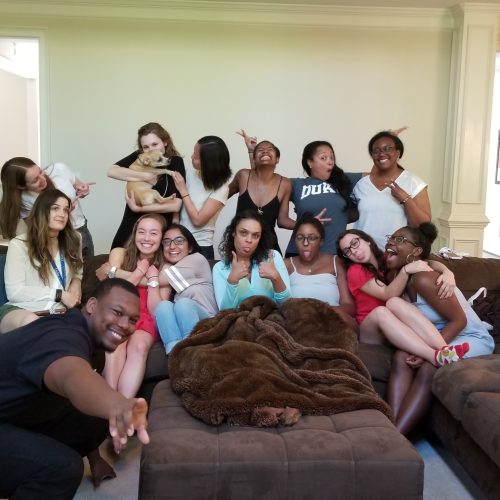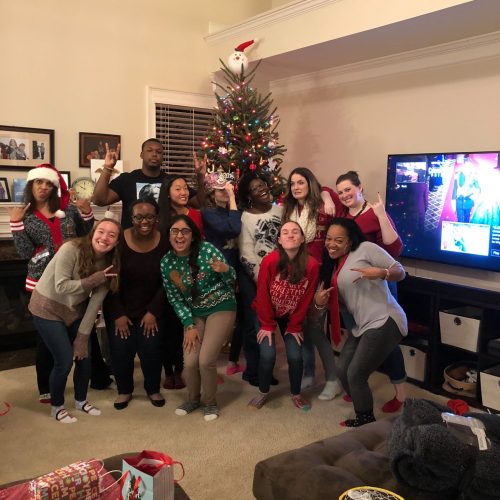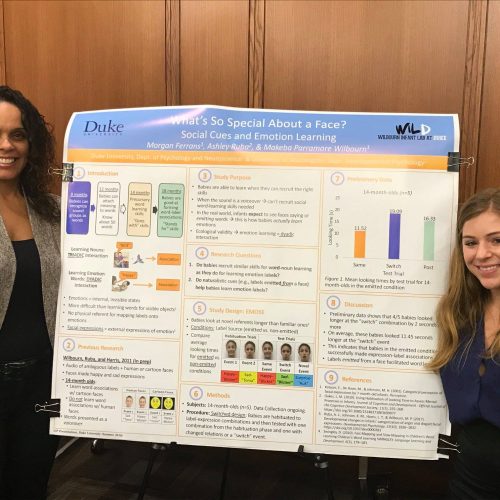The Wilbourn Infant Lab at Duke (WILD) is a developmental research lab in the Department of Psychology and Neuroscience at Duke University.
In the WILD, we study how children learn language and how different modes of input, such as gestures, may influence early language and cognitive development. In addition, we are interested in how different cultural backgrounds and linguistic experiences influence children’s language learning.










Research Questions
Gesture & Language
How do infants use nonverbal communication (e.g., gestures, facial expression, etc.) before they are capable of speaking?
How does the use of nonverbal communication in the form of gesture or gesture-accompanied speech, facilitate early word learning?
How do parents and caregivers interact with children both verbally and non-verbally and how does this influence children’s language development?
Culture, Gesture, & Language
How does race/culture and gesture influence children’s early vocabulary and language development?
What role do both culture and socioeconomic status play in how parents and caregivers interact with children both verbally and non-verbally and how does this influence children’s later language development?
Socio-Cultural Influences on Language and Cognition
How does one’s culture impact their communication style and perceptions of others’ communications styles?
What is the relationship between emotions and word learning?
What do children’s drawings reveal about their social and cognitive development?
